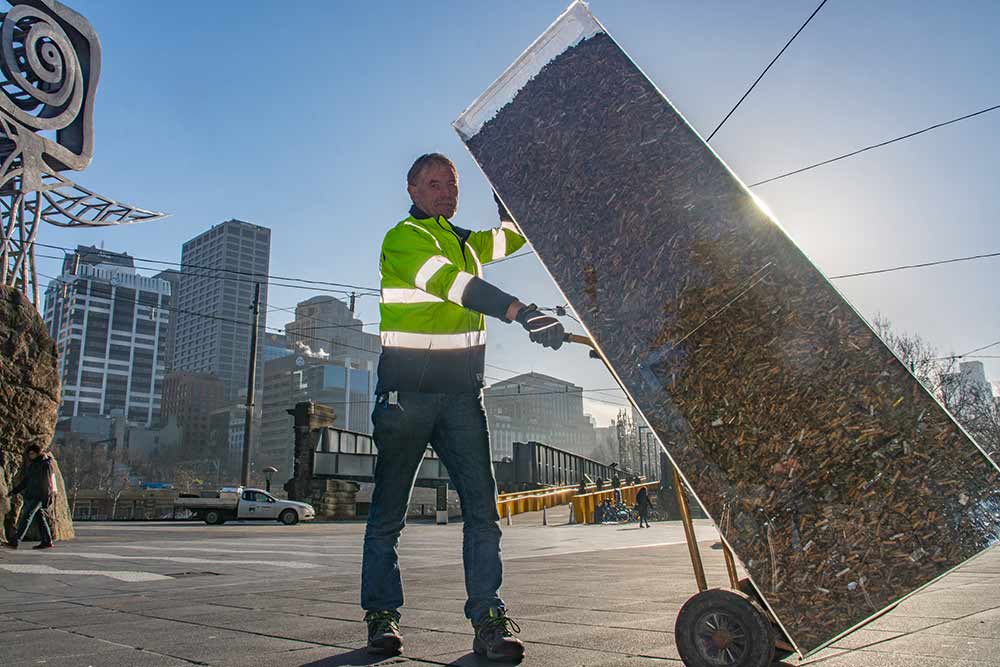
Photo: Enviropoles Operations Manager, Chris Holwell, with 68 kg worth of cigarette butts that have been collected from Melbourne’s streets for recycling.
A giant Perspex box in Melbourne’s Queensbridge Square on the banks of the Yarra River is giving onlookers a taste of what the city council is doing to clean up cigarette butt waste.
It’s filled with 200,000 cigarette butts and has three solar compaction litter bins are located nearby.
But what’s it all for?
The City of Melbourne is out to promote its participation in a scheme that’s set to sweep all the butts away by running a citywide initiative to recycle millions of cigarette butts into industrial products.
It’s only one of two councils in Australia that’s engaging in this initiative, the other being Canada Bay in New South Wales. But both have followed on from similar schemes in New Orleans in the United States, and Vancouver in Canada.
To complete the initiative, the City has partnered with Enviropoles, who collects the cigarette waste, and TerraCycle, who converts the butts into plastic products.
The project is funded through the Victorian Government’s Litter Hotspots program. According to the council, studies have shown that of the four disposal routes (recycling, litter, landfill, and incineration) recycling the cigarette butts has the lowest global warming impact.
City of Melbourne Lord Mayor Robert Doyle AC said the council collects 200,000 cigarette butts each week from 367 cigarette butt bins across the city: litter that may otherwise end up being washed down drains and into the Yarra River.
“Cigarette butts are not biodegradable and break down slowly. As part of this project, we will recycle binned cigarette butts into practical items such as shipping pallets and plastic furniture,” Mr Doyle said.
“We have collected 1.2 million butts from around Melbourne’s universities and hospitals and busy CBD locations that can be repurposed.”
Chair of the City of Melbourne’s Environment portfolio Councillor Cathy Oke said cities around the world are looking for new ways to reduce the amount of waste that goes to landfill and Melbourne is leading the way.
“Cigarette butts are the most littered item in Australia. Butts are commonly mistaken for food by marine life and have been found in the stomachs of fish, birds, sea turtles and other marine creatures,” Ms Oke said.
“We collect around nine million butts in our litter bins every year. We hope this project will motivate smokers to place their cigarette butts in one of the butt bins located around the CBD.”
Previous surveys have found that around 10,500 cigarette butts from the central city are being deposited on the ground every day. The City of Melbourne spends approximately $13 million on waste services each year (collection and disposal).





